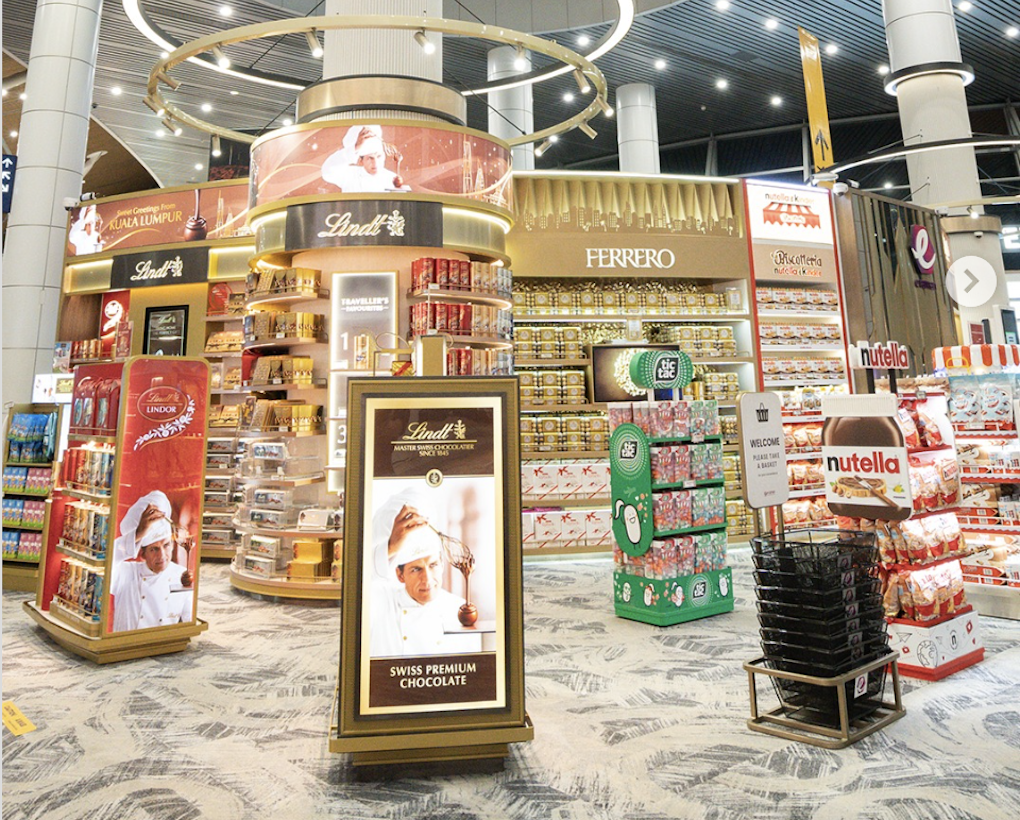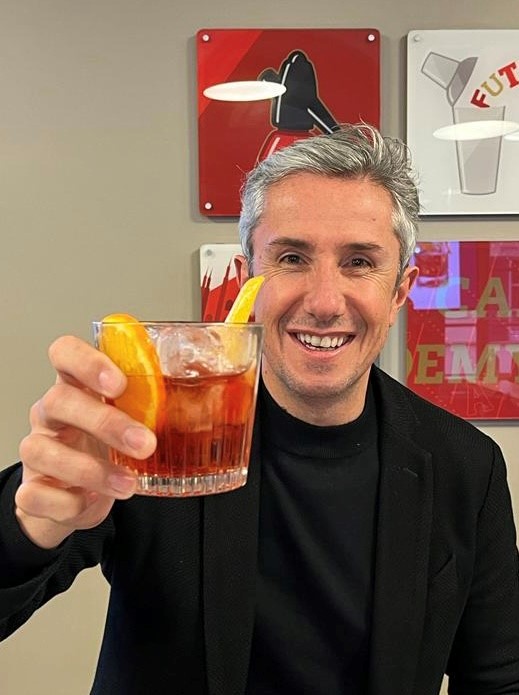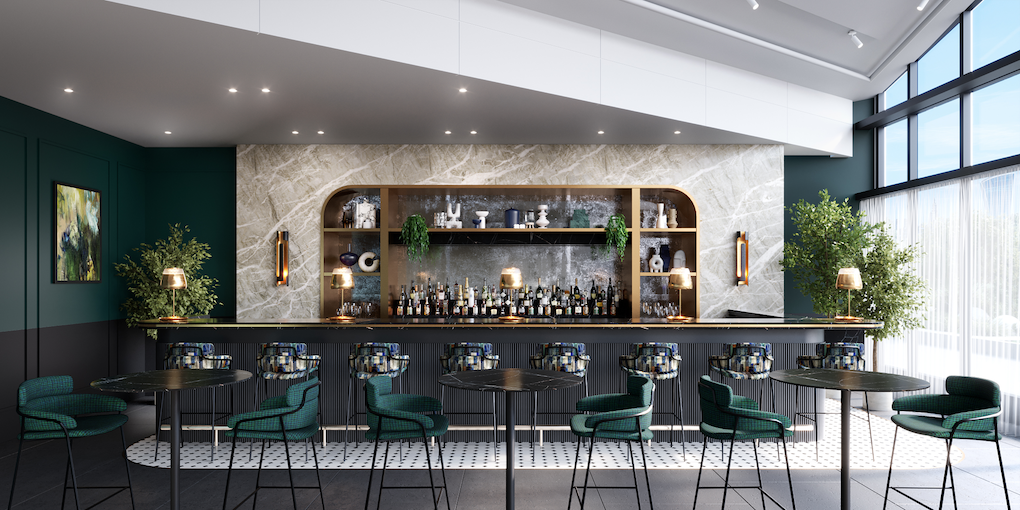 |
Global Manager Serge Brunschwig noted that Vuitton’s performance in China has far exceeded all expectations. He believes that while domestic sales are good, they account for only about half of the brand’s sales to Chinese people. The rest are made by the Chinese while they are travelling abroad. Photo by Hui Min Neo |
CHINA. September saw the Shanghai social scene enjoying unprecedented excitement at a series of grand parties. The Formula 1 racing competition on 26 September was a landmark event for the city, bringing priceless global exposure. But it was another event on Nanjing West Road that captured the imagination of the entire Asian fashion industry.
After 11 months of renovation, luxury brand Louis Vuitton finally opened its extraordinary China flagship store in the upmarket shopping centre Plaza 66. Meantime, the French house’s 150th anniversary celebration was held in the Shanghai Exhibition Centre. After a grand performance of Chinese traditional lion dances, Champagne flowed freely and limousines lined the streets as celebrities and tycoons attended the grand fete.
Louis Vuitton Chairman and Executive President Yves Carcelle noted that the Shanghai store, measuring 1,350sq m, was the French company’s largest franchise in Asia. Not only will the brand’s entire line of clothing debut at the store, but it will also feature the complete accessories range and other items.
This definitive luxury brand began its foray into China in 1992 with a store in Beijing. During the intervening 12 years, Louis Vuitton (or LV as it is popularly known) has worked its way into the hearts and minds of the Chinese, and now has 11 stores in six cities.
“TWENTY YEARS AGO ‘LUXURY’ WAS A DEROGATORY TERM IMPLYING A SENSE OF IMMORALITY”¦ THINGS HAVE CHANGED FUNDAMENTALLY”
Global Manager Serge Brunschwig noted that Vuitton’s performance in China has far exceeded all expectations. He believes that while domestic sales are good, they account for only about half of the brand’s sales to Chinese people. The rest are made by the Chinese while they are travelling abroad.
As a result, the Chinese domestic market will be the brand’s prime focus for development. Louis Vuitton will simultaneously expand its distribution network while strengthening and innovating the brand.
Nanjing West Road has become China’s Bond Street. Around the time of the Vuitton opening, the 10-year-old Hard Rock Café was replaced by another luxury house, Gucci. Nearby is Marc Jacobs’ first store in China. Many more are already there or coming soon – over 40 luxury brands have extended their space along the road, sending property results soaring. The lease price of the commercial shops in West Nanjing Road has risen to over US$2,000 per square metre, compared to US$1,600 last year.
What’s next? I understand that two Hong Kong luxury department stores, Lane Crawford and Manson Mode, have aggressive plans to expand into a number of China’s cities, including Chongqing, a city 1,200 miles away from Shanghai.
When Lane Crawford opened earlier this year in Hangzhou, many products in the retailer’s Gucci outlet sold out in the first day. Interestingly, sales revenue was +30% higher than that of the Shanghai store. The race for the Chinese luxury consumer does not stop at Shanghai or Beijing.
Naturally, Louis Vuitton didn’t want to be left behind and it quickly took up Hangzhou Shopping Centre’s olive branch. The department store invested almost US$2 million to renovate the Louis Vuitton store free of charge, and bought in the brand’s entire range in order to gain an advantage over Lane Crawford’s Gucci store.
But Gucci is every bit as aggressive as Vuitton. The luxury house hopes to boost its sales in the next financial year by at least +30% through the China market. The target is founded on one figure – luxury customers make up about 1% of the Chinese population, i.e. 12 million people. A tiny percentage but a major force.
Quite simply, the Chinese are madly in love with luxury goods. On the evening of 25 September, the opening cocktail party of Chinese Formula 1 grand prix, accompanied by a Ferrari show, and the celebration of Hugo Boss’s 10th anniversary in China were held along Huangpu River, just one mile from each other. The riverside evening was illuminated by spectacular fireworks which dazzled in the night sky.
Today’s Shanghai is similar to the Tokyo of the 1980s. I believe that it won’t be very long before we see women and men proudly showing off their LV bags along the streets of Shanghai. And in many ways the consumption pattern of the Chinese mirrors that of the Japanese years earlier.
“ON MANY OCCASIONS THESE LUXURY GIANTS DON’T EVEN HAVE TO PAY FOR THE ADVERTISING”
That pattern is being played out in the country’s booming consumer media. Barely a month goes by without the launch of another fashion or lifestyle magazine. In the fast-developing and intensely competitive magazine arena, Europe’s top brands are both the target and the drawcard of many of these titles.
 |
The new generation of media and their increasingly wealthy or aspirational readers yearn for luxury. Our world here in China is changing too fast for many people to develop proper tastes and etiquette, so they plunge into buying expensive goods, equating them symbolically with success. Photo by Hui Min Neo |
Chanel or Louis Vuitton advertisements can be seen everywhere. But listen to this – on many occasions these luxury giants don’t even have to pay for the advertising. The magazines simply provide the “˜free lunch’ to become more eye-catching and desirable to middle and upper class readers.
A marketing director of a French top luxury brand told me that she received advertising offers from different magazines almost every day, most of them equating to free exposure. Even so, she’s very selective and won’t say yes every time. She said that her brand had only paid for advertising in fewer than 10 magazines, while at least 50 had offered free coverage. Who would be an advertising sales director?
China now freely describes US and European upmarket labels as luxury or top-end brands. Twenty years ago, “˜luxury’ was a derogatory term implying a sense of immorality. Things have changed fundamentally.
The new generation of media and their increasingly wealthy or aspirational readers yearn for luxury. Our world here in China is changing too fast for many people to develop proper tastes and etiquette, so they plunge into buying expensive goods, equating them symbolically with success.
A friend spoke sarcastically – albeit with a hint of jealousy – about a rich woman he knows: “The woman buys only LV every time she goes to Hong Kong because, as she said, she knows little about other brands. Each purchase costs her tens of thousands, and she pays for everything in cash!”
[Kevin Chen is a Chinese national living in Shanghai. He previously worked in different parts of China for multinational firms including L’Oréal and Fuji-film, and later moved into the publishing field as a marketing director, vice president and editor-in-chief for local magazines. He is a columnist and freelance writer. He can be reached by email on kevinck@vip.sohu.net]
PREVIOUS LETTERS FROM SHANGHAI







